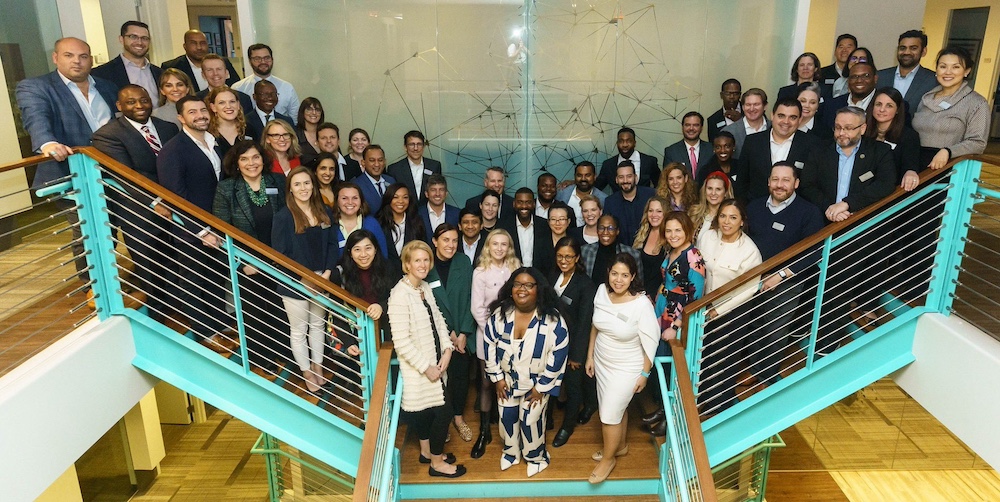Every Wednesday night, Rani Elwy, Ph.D., logs into her computer to sift through budget and bylaw proposals as part of the unpaid ranks of the Advisory Committee of the Town of Wellesley, Massachusetts.
Never mind that she’s an in-demand implementation scientist with an already teeming schedule: Elwy runs a hefty research portfolio at the U.S. Department of Veterans Affairs (VA), mentors dozens of researchers as a professor at Brown, and directs the university’s rapidly growing implementation science core, the BRIDGE program.
But Elwy believes she has a responsibility to lead where she can make a difference, even in local government. “From an implementation science perspective, I know policy is how you get things done,” she says.
Now, fittingly, Elwy will hone her professional leadership skills in a program that draws lessons from the highest echelons of American public life. Elwy is one of 60 leaders-in-their-field selected to participate in the Presidential Leadership Scholars (PLS) program, a partnership of the presidential centers of George W. Bush, William J. Clinton, George H.W. Bush, and Lyndon B. Johnson. The PLS program convenes a diverse network of participants – from such wide-ranging fields as law, government, medicine, and nonprofit work – to collaborate and create meaningful change as they learn about leadership through the experiences of the four presidents and their administrations.
“What I thought was so great about this program was that this is not a program for only academics,” Elwy says. “This will be so different from anything I’ve done before.”
To this point in her career, Elwy has taken on a variety of leadership roles in both civic and academic arenas. In 2015, she was appointed director of the VA’s Center for Information, Dissemination and Education Resources (CIDER), which provides relevant research to policymakers in federal government. More recently, she joined a workgroup with the White House Steering Committee for Pandemic Innovation to increase public uptake of positive health behaviors. Closer to home, Elwy serves not only on the Advisory Committee for the Town of Wellesley, where she lives, but also as an elected Town Meeting member.
But perhaps Elwy’s greatest leadership challenge has been directing the Brown University BRIDGE program, which provides consultation and education in implementation science to the university’s faculty and trainees. Over the past five years, she has accelerated the program’s growth from a one-person outfit to a team of nearly a dozen dedicated researchers. Along the way, she had to learn how to create a business plan and strategize the program’s long-term sustainability.
“The BRIDGE program has taken me outside my normal element,” she says. “That’s what got me thinking I could benefit from some leadership mentoring.”

Over the course of the PLS program, which runs from January to June 2024, Elwy and her cohort will travel to each participating presidential center to learn advanced leadership principles in vision and communication, decision-making, persuasion and influence, and strategic partnership from key former administration officials, business and civic leaders, and leading academics. Presidents George W. Bush and Bill Clinton will participate in various program activities to the extent that their schedules allow.
As part of the program, Elwy will also develop her own leadership project – the creation of a new national mentoring program designed to increase the retention of women and women of color in science. She hopes to launch the program by the Fall of 2024 with an initial cohort of 10-12 participants. Ultimately, Elwy envisions growing the program into a nonprofit organization better equipped to meet the scale of the need.
“My goal is to ensure that government agencies and universities do not lose highly regarded, talented, and skilled scientists who are women and women of color as a result of misplaced perceptions of what it takes to succeed as a scientist,” Elwy says. “The PLS program will give me the skills to build and lead that program.”